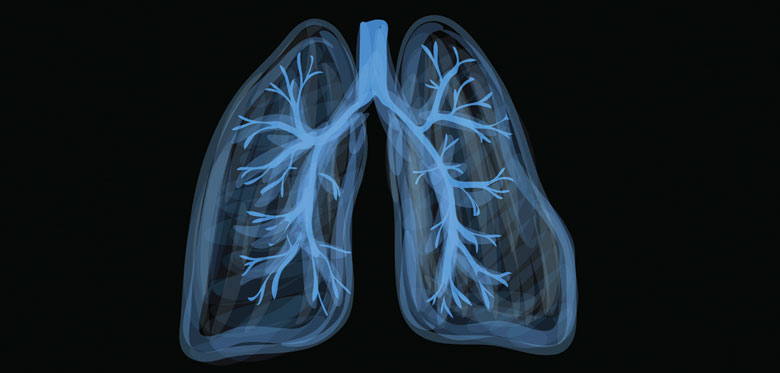November is Lung Cancer Awareness Month and is now in its 8th year. The aim of the campaign is to encourage people displaying the common signs of lung cancer (persistent cough, breathlessness or unexplained weight loss) to visit their GP.
Often considered a taboo cancer, lung cancer is the UK’s biggest cancer killer, claiming almost 35,000 lives each year and is the most common cause of death from cancer for both men and women.
Lung cancer usually affects people over the age of 60. Younger people can develop lung cancer but that is rare. Whilst it should be remembered that anyone can develop lung cancer, around 90% of cases occur in people who smoke or used to smoke.
And the more cigarettes you smoke and the number of years you smoked them for, increases your risk of getting lung cancer.
Even if you’ve smoked for many years, it is still worth giving up, as the risk gets lower over time, for example after ten years, your risk of getting lung cancer is half that of a person who smokes. So it’s better late than never to give up smoking.
Breathing in other people’s smoke over a long period of time can also increase your risk of developing lung cancer. And other environmental factors, such as exposure to asbestos, can also increase the risk.
People who have never smoked are more likely to develop one particular type of lung cancer called adenocarcinoma.
Lung cancer is when abnormal cells divide in an uncontrolled way to form a tumour in the lung. The main symptoms are a cough, breathlessness and weight loss. The treatment you need depends on what type of lung cancer you have as well as your general health and include surgery, drug therapies such as chemotherapy and radiotherapy.
Sometime lung cancer can’t be cured. End of life care is designed to make you as comfortable as possible and includes palliative care to control pain and other symptoms.
Being diagnosed with lung cancer can be frightening and it’s normal to feel overwhelmed. Talking about feelings and concerns is often helpful and you can do this with friends and family, or with specialists such as your cancer care nurse or GP. You may also benefit from a referral to a counsellor or psychologists and some GP practices have counselling services as part of their team.
There are also a number of organisations who can offer support, guidance and assistance such as :
British Lung Foundation - helpline 03000 030 555
The Roy Castle Lung Cancer Foundation - 0333 323 7200
Macmillan Cancer Support - 0808 808 00 00
If you or a family member have developed lung cancer and believe this to be asbestos related, we can help. We have specialists who are experienced in helping people claim compensation for these illnesses, including making claims on behalf of people who have lost a loved one to an asbestos related illness. If you would like to speak to one of our specialists please ring us on 01616 966 229.



Comments